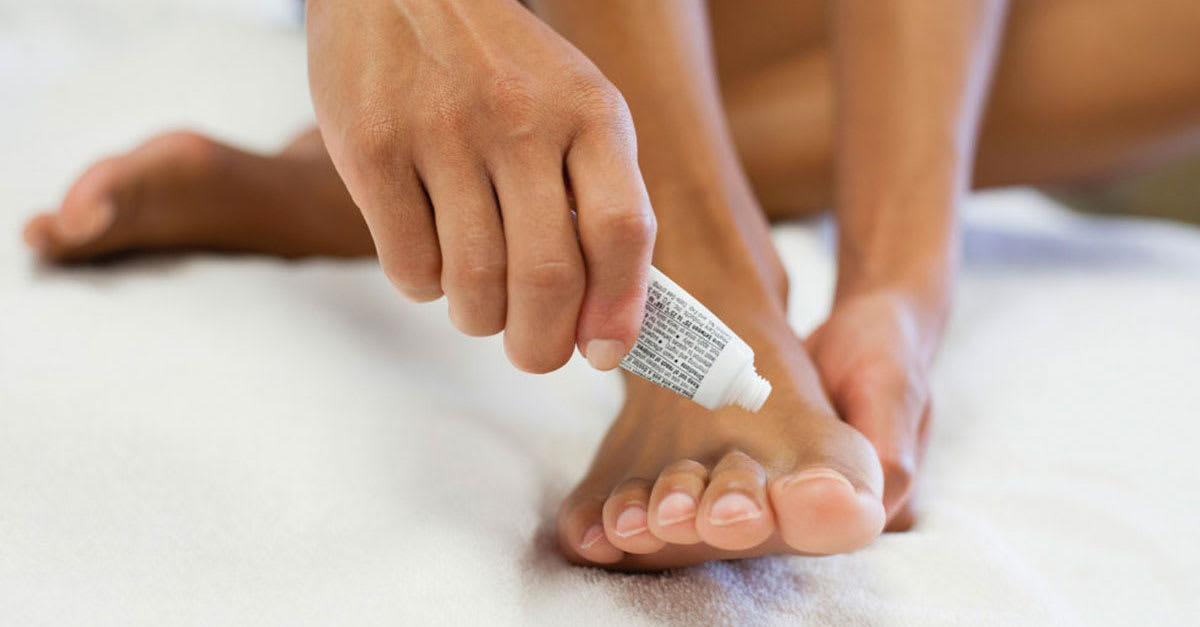What Causes Antifungal Infections? Here's Terrific Insight!
Antifungal infections are a major concern for many people worldwide. Understanding what causes antifungal infections is crucial for maintaining good health, particularly among health-conscious consumers who strive to stay informed about their well-being. This article provides an in-depth look at the root causes and factors contributing to antifungal infections, offering valuable insights to help you protect yourself from these pesky invaders.

The Basics of Fungal Infections
To grasp what causes antifungal infections, it's essential to understand the fundamental aspects of these infections. Fungal infections are caused by a variety of fungi that can thrive on different parts of the body. These fungi can affect the skin, nails, hair, and even internal organs. The most common types of fungal infections include athlete's foot, jock itch, ringworm, and yeast infections.

Common Causes of Antifungal Infections
Moisture and Warm Environments
One of the primary triggers for fungal infections is the presence of moisture and warm environments. Fungi thrive in damp, warm conditions, making areas such as the feet, groin, and underarms particularly susceptible to infection. Ensuring that you keep these areas dry and clean can significantly reduce the risk of infection.
Compromised Immune System
A compromised immune system can make you more vulnerable to fungal infections. Conditions such as HIV/AIDS, diabetes, and autoimmune diseases can weaken your immune response, allowing fungi to take hold and multiply more easily. It's crucial to manage these conditions effectively and maintain a balanced diet and healthy lifestyle to support your immune system.
Poor Hygiene
Poor hygiene is another common cause of fungal infections. Failing to wash regularly, sharing personal items, and not changing clothes frequently can create an environment where fungi can thrive. Practicing good hygiene by showering daily, washing hands regularly, and avoiding the sharing of personal items can help prevent fungal infections.
Close Contact
Fungal infections can spread through close contact with an infected person or contaminated objects. Communal showers, locker rooms, and swimming pools are common places where fungi can be transmitted. To minimize the risk, always wear flip-flops in shared spaces, avoid direct contact with infected individuals, and disinfect personal items regularly.

Preventing Antifungal Infections
Good Hygiene Practices
Maintaining good hygiene is critical in preventing fungal infections. Shower daily, wash your hands frequently, and avoid sharing personal items such as towels, shoes, and clothing. Ensure that you dry yourself thoroughly after bathing or swimming, especially in areas prone to moisture buildup. For more tips, read this guide on proper body washing techniques.
Wear Breathable Clothing
Wearing breathable clothing made from natural fibers like cotton can help reduce the risk of fungal infections. These materials allow your skin to breathe and wick away moisture, creating an environment that is less conducive to fungal growth.
Healthy Diet and Lifestyle
A healthy diet and lifestyle play a significant role in preventing fungal infections. Consuming a balanced diet rich in fruits, vegetables, and whole grains can strengthen your immune system, making it more resilient against infections. Regular exercise and stress management techniques such as meditation and yoga can also help support your overall well-being.
Avoiding Contaminated Areas
Steering clear of contaminated areas can further reduce your risk of fungal infections. Wear flip-flops or shower shoes in communal showers, locker rooms, and swimming pools. Regularly clean and disinfect personal items and avoid direct contact with infected individuals. Also, consider reading our guides on antifungal tea tree oil body wash and coconut oil body wash.

Treatment Options for Antifungal Infections
Over-the-Counter Medications
Over-the-counter antifungal medications are widely available and can be effective in treating minor fungal infections. These medications come in various forms, including creams, ointments, sprays, and powders. Follow the instructions on the packaging for the best results.
Prescription Medications
For more severe or persistent fungal infections, a healthcare professional may prescribe stronger antifungal medications. These can include topical treatments, oral medications, or even intravenous antifungal drugs in more serious cases. Always follow your doctor's instructions and complete the entire course of treatment to ensure the infection is fully eradicated. Additionally, you might benefit from checking out our article on the ultimate guide to antifungal facewash.
Home Remedies
Some people find relief from fungal infections through home remedies. Common home remedies include applying tea tree oil, apple cider vinegar, or coconut oil to the affected area. While these remedies can be effective for mild infections, it's essential to consult with a healthcare professional before attempting any home treatment.
When to See a Doctor
If you suspect that you have a fungal infection and over-the-counter treatments are not effective, it is essential to seek medical advice. A healthcare professional can diagnose the infection accurately and recommend the most appropriate treatment. Additionally, if you have a compromised immune system or an underlying health condition, it is crucial to consult with your doctor at the first sign of a fungal infection.
FAQs
Can antifungal infections be prevented completely?
While it may be challenging to prevent antifungal infections entirely, practicing good hygiene, maintaining a healthy lifestyle, and avoiding known risk factors can significantly reduce your chances of developing an infection.
Are antifungal medications safe for long-term use?
Most antifungal medications are safe when used as directed. However, long-term use of some antifungal drugs can cause side effects or lead to drug resistance. Consult your healthcare provider for personalized advice and recommendations.
Can diet influence the occurrence of antifungal infections?
Yes, a healthy and balanced diet can boost your immune system, making you less susceptible to infections. Consuming foods with natural antifungal properties, such as garlic, ginger, and yogurt, may also help prevent fungal infections.
For more information on maintaining good hygiene practices, visit the World Health Organization's website.
As an Amazon Associate, I earn from qualifying purchases.

